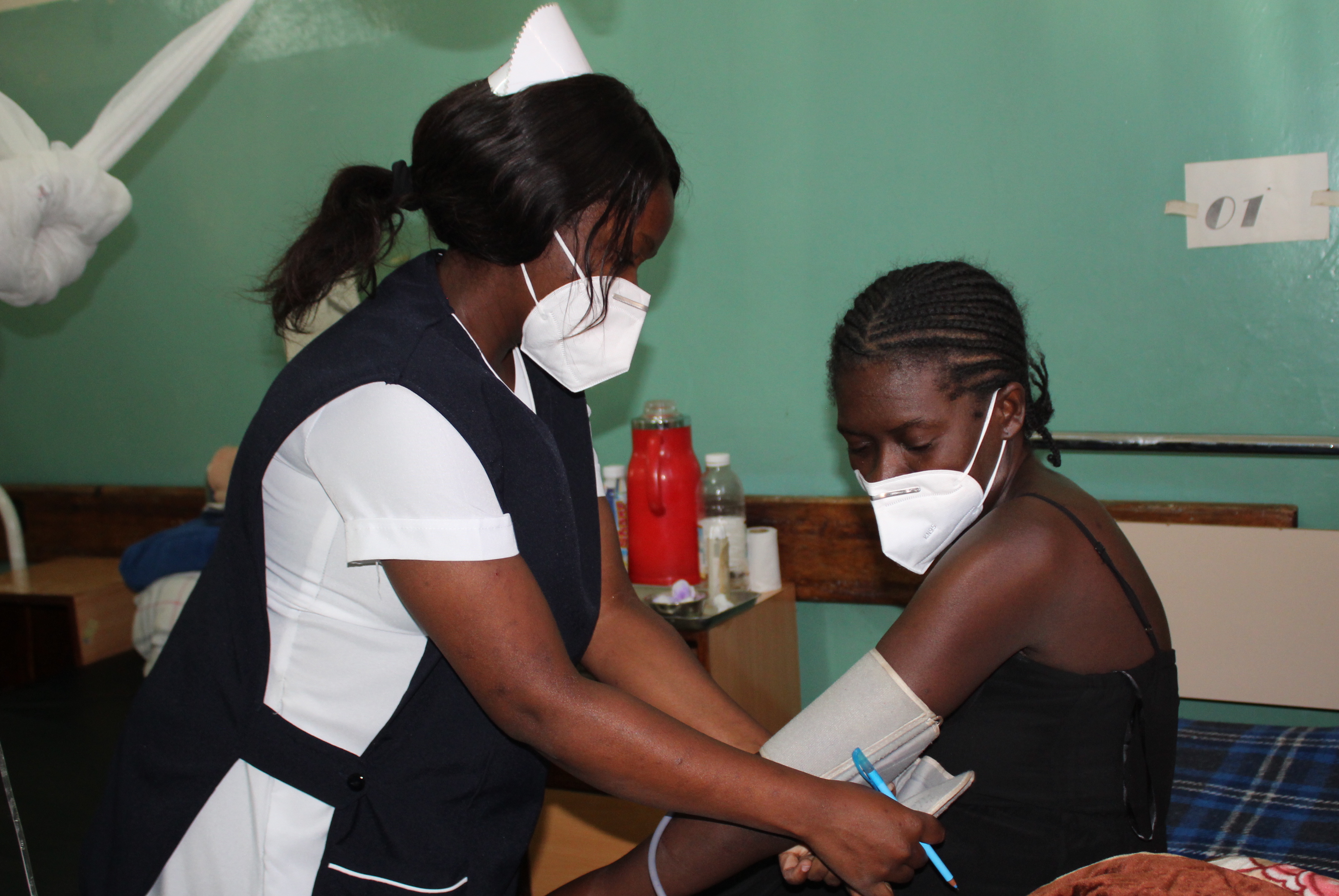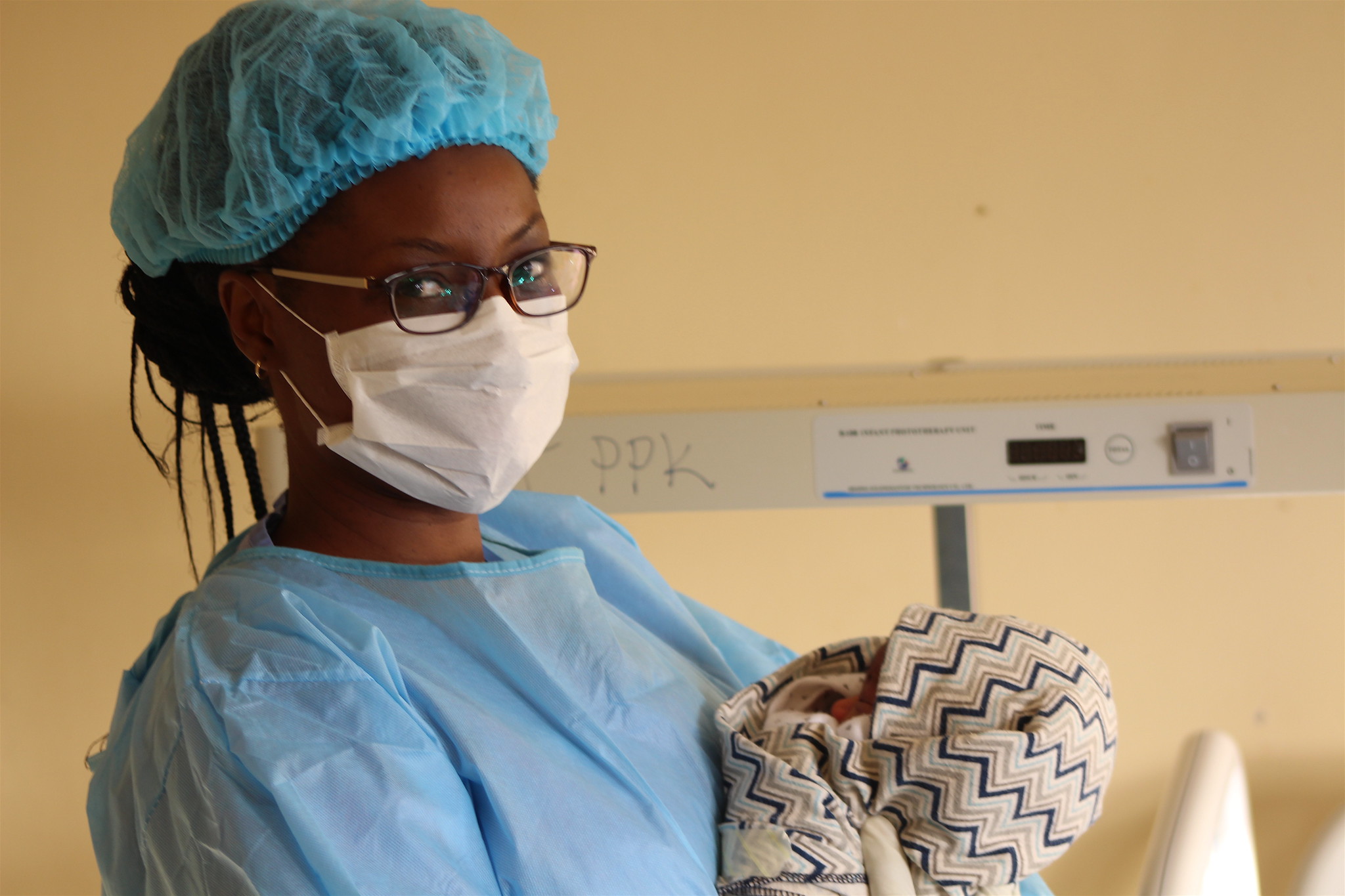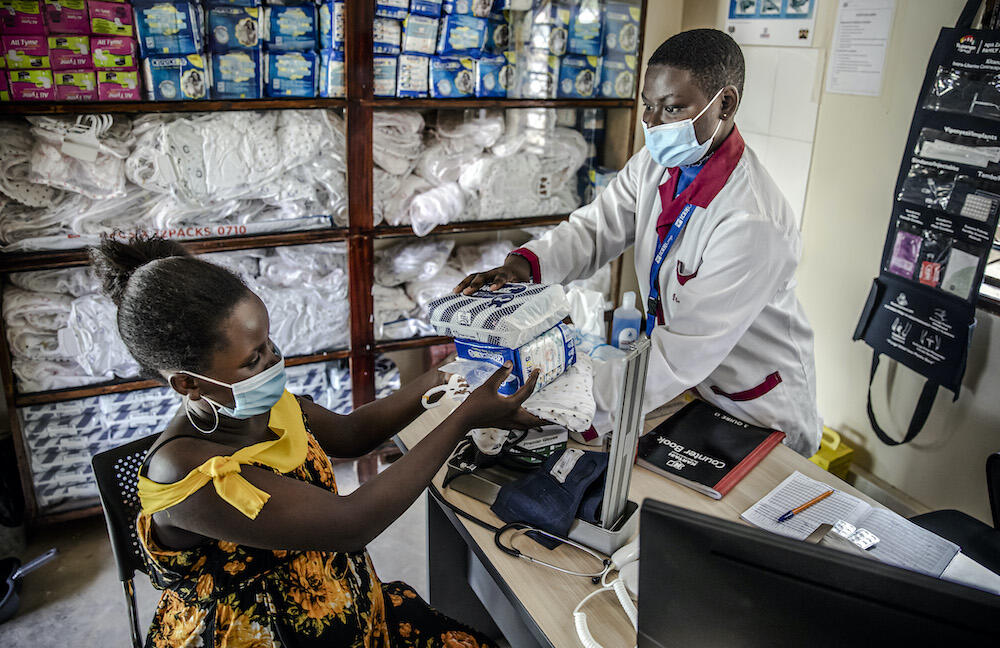LUANDA, Angola, MBABANE, Eswatini, PRETORIA, South Africa and LUSAKA, Zambia—“Young people are able to access [sexual and reproductive health] services but not as much as they used to before the lockdown,” said Kondelwani Kamanga, a 27-year-old student from Zambia.
Globally, weaknesses in health-care systems have been exposed by the COVID-19 pandemic, including the provision of sexual and reproductive health information and services, which have been severely disrupted. The consequences will be felt at all levels – families, communities, and countries.

In Zambia, for instance, an increase in fertility rates, especially among adolescent girls, is projected based on preliminary data from health facilities. This is as a result of low use of services such as family planning and adolescent sexual and reproductive health, for fear of contracting COVID-19 in health facilities.
Zambia is currently experiencing a third wave of the pandemic. With schools remaining closed to reduce the spread of the virus, adolescent girls are more vulnerable to pregnancy and child marriage, which could in turn contribute to an increase in the country’s already high fertility rates. A notable increase in maternal deaths during peak infection periods has been recorded by the government, which is worrying. The pandemic has also exacerbated gender inequities and gender-based violence. Under lockdowns, incidences of violence have increased.
“During pandemics, women and girls are among the most severely affected population groups, with a heightened need for health and protection services,” said Zambia’s Minister of Gender, Elizabeth Phiri. “There is a critical need to ensure continuity of services for women and girls amid the COVID-19 pandemic, including the integration of gender-based violence response in existing health services.”
There is a critical need to ensure continuity of services for women and girls amid the COVID-19 pandemic, including the integration of gender-based violence response in existing health services.

Similar effects have been felt in Eswatini, where anecdotal data showed a 50 per cent decrease in access to family planning by women and a 47 per cent decrease on access to SRH services among adolescents at the start of COVID-19 infection in the country. This is expected to negatively impact women’s ability to achieve their desired family size, potentially resulting in a compromised quality of life.
“Women need to be empowered to discuss sexual and reproductive health issues freely with their partners,” said Nokuphila Dlamini, 27. “This can enable women to get the available family planning services which would assist them to adhere to having the intended number of children.”
Women need to be empowered to discuss sexual and reproductive health issues freely with their partners.
Globally, when countries responded to the pandemic by reallocating resources away from essential sexual and reproductive health services, it took a toll on the health of women and girls. In Eswatini, the government prioritized the national response and other essential health-care services, such as family planning, suffered. Severe shortages of reproductive health commodities were experienced towards the end of 2020.
As a result, gains made in the reduction of fertility rate from 6 children per woman to 3 children per woman in recent years could be reversed. A recent rapid assessment showed, for instance, that when senior classes re-opened after the COVID-19 lockdown, more than 300 girls could not return to school due to pregnancy – one of the indications that the fertility rate may increase.

In Angola, fertility rates are also expected to increase, especially due to the partial interruption of family planning services in the first few months of the pandemic. However, no studies have yet been carried out to prove or disprove this perception. At 6.2 births per woman, the nation has one of the highest fertility rates in the region. Poverty has increased by 50 per cent due to the pandemic, as noted by the Angolan Government.
Said Ana Leitão, Advisor to National Public Health Directorate of Angola: “The first issue is to inform and educate men and women, because both women and men find it rich to have a very large family. Girls and women, especially, do not know their rights. Secondly, teach [this] from an early age. And thirdly, more involvement of boys and men [is needed … ] on gender equality.”
The first issue is to inform and educate men and women, because both women and men find it rich to have a very large family. Girls and women, especially, do not know their rights.
Economic impacts greater on women
Globally, the economic impacts have been especially difficult for women and girls, as in general they earn less, have lower job security and are at greater risk of losing their livelihoods. They have also experienced an increase in the burden of unpaid care work, which for many means they are unable to remain in the workforce.
South Africa experienced a major reduction in the use of health services during its hard lockdown in 2020, due to movement restrictions and the fear of contracting COVID-19 in health-care facilities. This compromised continuity of care regarding sexual and reproductive health and gender-based violence services, including access to termination of pregnancy. It represents a major stumbling block in a country faced with an unmet need for family planning of 19 per cent among women of reproductive age, and where unsafe abortions account for more than 50 per cent of all abortions, despite progressive laws.

Because the South African Government classified GBV services as essential throughout the lockdown, there was political commitment to ensuring services from the beginning. However, implementation was an issue, and there were practical concerns related to movement restrictions and the GBV survivors being stuck at home with the perpetrators.
In Zambia, due to decreased use of services during the peak periods, efforts are being made to enhance community distribution systems to ensure ongoing service provision, and to curtail the rise in maternal deaths. With support from UNFPA and other partners, the government invests in the last mile distribution of essential reproductive health products to ensure that family planning and maternal health services are sustained.
How to reverse impact of COVID-19
If the economic, health and wellbeing gains of improved sexual and reproductive health in East and Southern Africa are to be maintained, it is essential that governments prioritize the reproductive health and rights of all people, including through access to sexual and reproductive health information and services.
Health systems should be supported to deliver sexual and reproductive health services during crises, including by classifying this work as essential. Women must be empowered educationally, economically and politically in order to exercise unencumbered choice over their bodies and fertility.
It is equally important that governments address major gaps in data on the impact of COVID-19 on fertility. To understand demographic shifts, countries need timely and accurate information about births and deaths.


